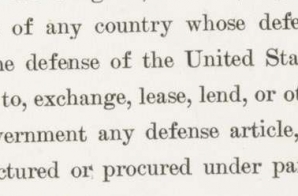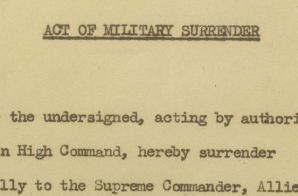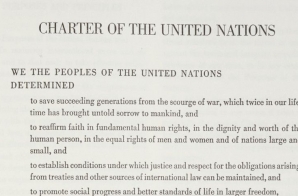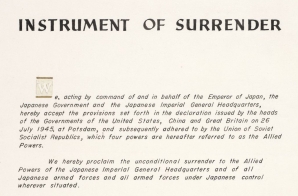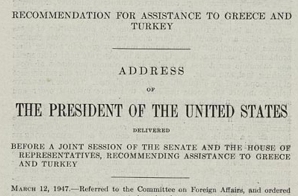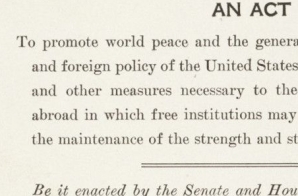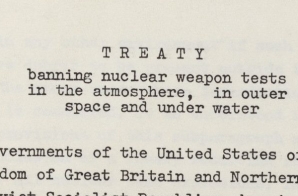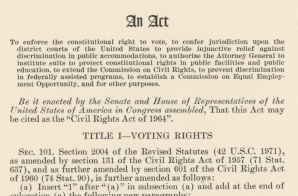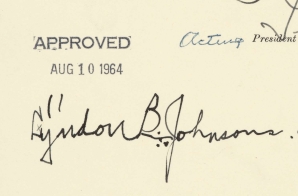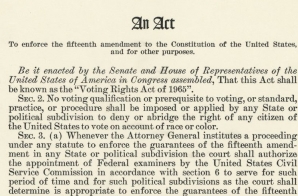
Knowledge of our own history is essential in the making of Americans. The nation is greater than our own experiences, and its greatness can be comprehended only by knowing something of the deeds and the hopes of our fellow-Americans. It has an interesting story to tell, and it illustrates aspects of human behavior which the arts singly have never been able to present. Everything that men have said and done is raw material for history, but history is more than a pile of this raw material, just as a book is more than a heap of type. The United States has great traditions to remember and great ideals for which to strive. But if the traditions and the ideals exist only in textbooks and classrooms they are museum pieces. We must live our traditions and our ideals before we can teach them. The primary documents on this page highlight pivotal moments in the course of American history or government.
Revolution and the New Nation
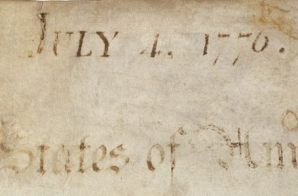
Declaration of Independence (1776)
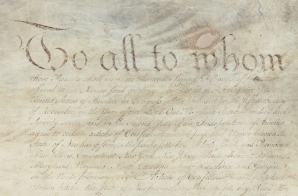
Articles of Confederation (1777)

Treaty of Alliance with France (1778)
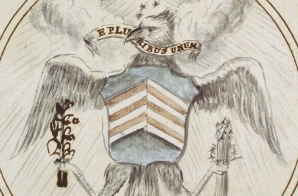
Original Design of the Great Seal of the United States (1782)
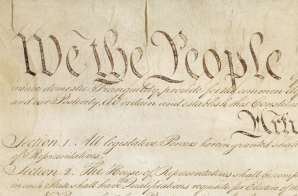
Constitution of the United States (1787)
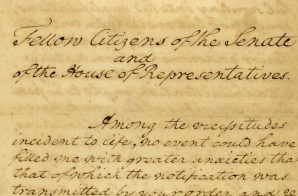
President George Washington's First Inaugural Speech (1789)
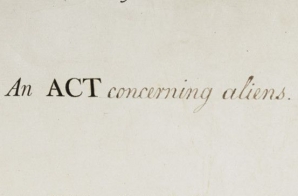
Alien and Sedition Acts (1798)
Expansion and Reform
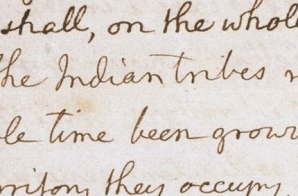
Jefferson's Secret Message to Congress Regarding the Lewis and Clark Expedition (1803)
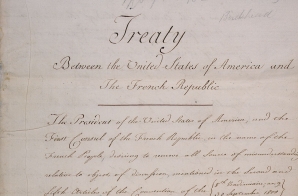
Louisiana Purchase Treaty (1803)
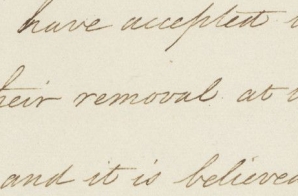
President Andrew Jackson's Message to Congress 'On Indian Removal' (1830)
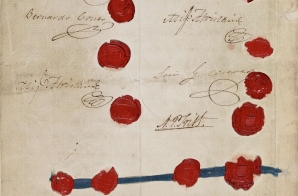
Treaty of Guadalupe Hidalgo (1848)
Civil War and Reconstruction
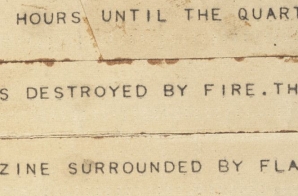
Telegram Announcing the Surrender of Fort Sumter (1861)
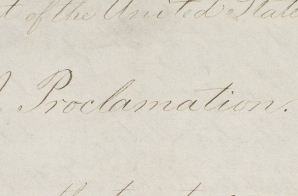
Emancipation Proclamation (1863)
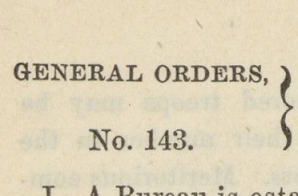
War Department General Order 143: Creation of the U.S. Colored Troops (1863)
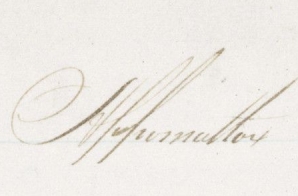
Articles of Agreement Relating to the Surrender of the Army of Northern Virginia (1865)
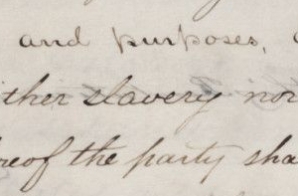
13th Amendment to the U.S. Constitution: Abolition of Slavery (1865)
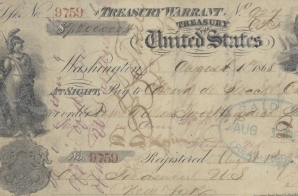
Check for the Purchase of Alaska (1868)
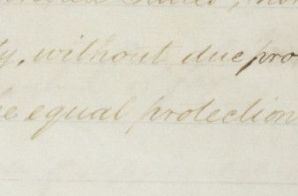
14th Amendment to the U.S. Constitution: Civil Rights (1868)
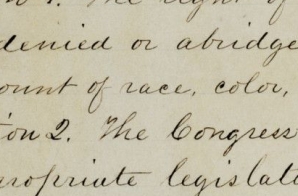
15th Amendment to the U.S. Constitution: Voting Rights (1870)
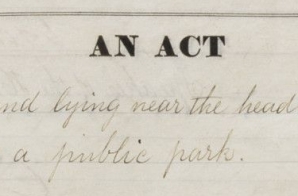
Act Establishing Yellowstone National Park (1872)
The Development of the Industrial United States
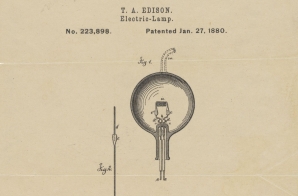
Thomas Edison's Patent Application for the Light Bulb (1880)
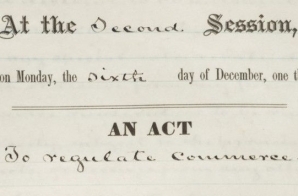
Interstate Commerce Act (1887)
The Emergence of Modern America
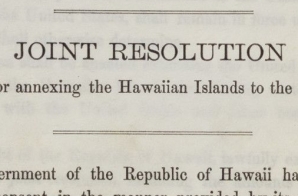
Joint Resolution to Provide for Annexing the Hawaiian Islands to the United States (1898)
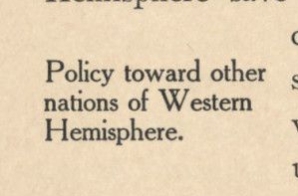
Theodore Roosevelt's Corollary to the Monroe Doctrine (1905)
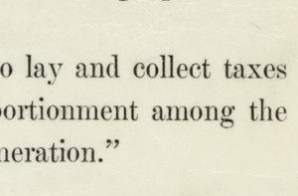
16th Amendment to the U.S. Constitution: Federal Income Tax (1913)
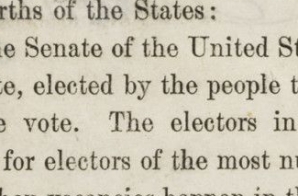
17th Amendment to the U.S. Constitution: Direct Election of U.S. Senators (1913)
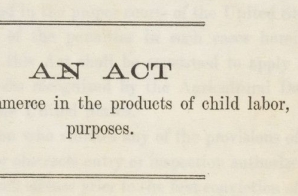
Keating-Owen Child Labor Act of 1916 (1916)
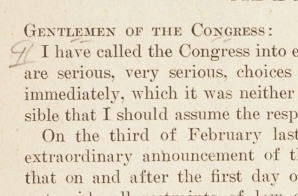
Joint Address to Congress Leading to a Declaration of War Against Germany (1917)
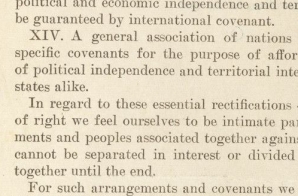
President Woodrow Wilson's 14 Points (1918)
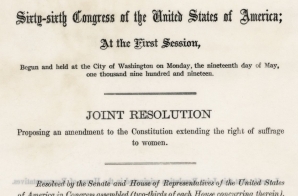
19th Amendment to the U.S. Constitution: Women's Right to Vote (1920)
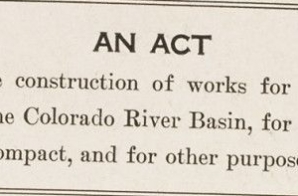
Boulder Canyon Project Act (1928)
The Great Depression and World War II
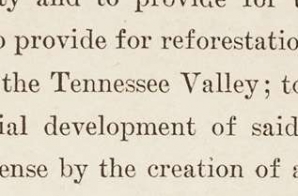
Tennessee Valley Authority Act (1933)
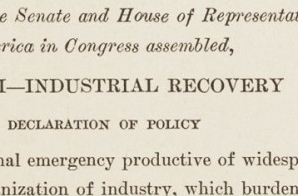
National Industrial Recovery Act (1933)
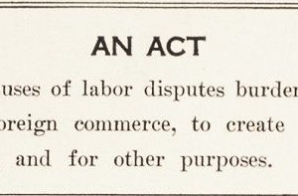
National Labor Relations Act (1935)
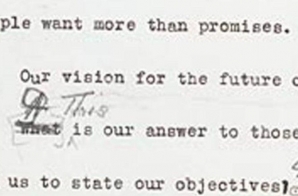
President Franklin Roosevelt's Radio Address unveiling the second half of the New Deal (1936)
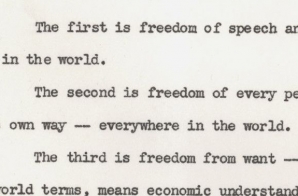
President Franklin Roosevelt's Annual Message (Four Freedoms) to Congress (1941)
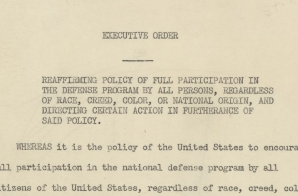
Executive Order 8802: Prohibition of Discrimination in the Defense Industry (1941)

Joint Address to Congress Leading to a Declaration of War Against Japan (1941)
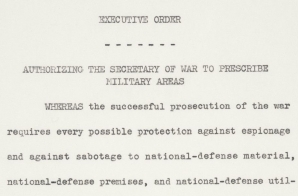
Executive Order 9066: Resulting in Japanese-American Internment (1942)
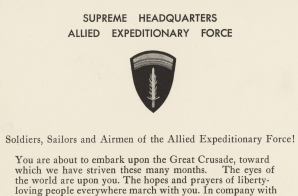
General Dwight D. Eisenhower's Order of the Day (1944)
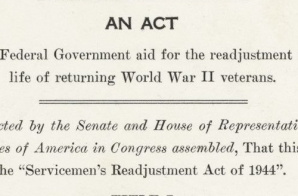
Servicemen's Readjustment Act (1944)
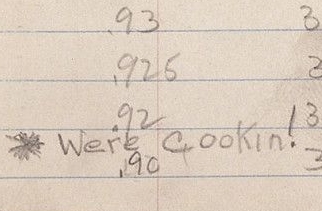
Manhattan Project Notebook (1942)
Postwar United States
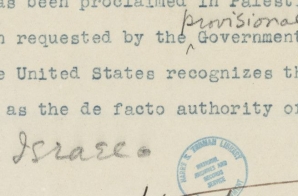
Press Release Announcing U.S. Recognition of Israel (1948)
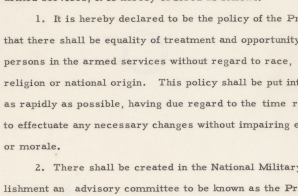
Executive Order 9981: Desegregation of the Armed Forces (1948)
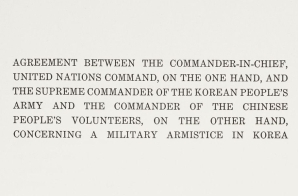
Armistice Agreement for the Restoration of the South Korean State (1953)
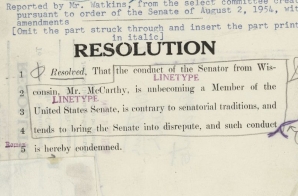
Senate Resolution 301: Censure of Senator Joseph McCarthy (1954)
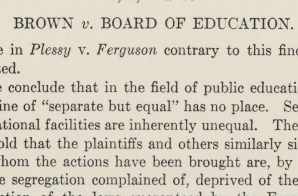
Brown v. Board of Education (1954)
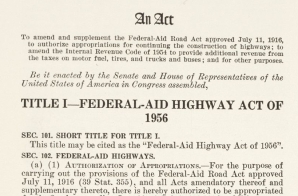
National Interstate and Defense Highways Act (1956)
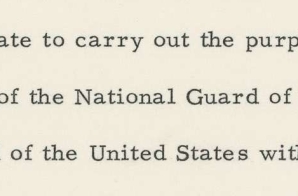
Executive Order 10730: Desegregation of Central High School (1957)
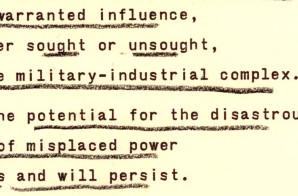
President Dwight D. Eisenhower's Farewell Address (1961)
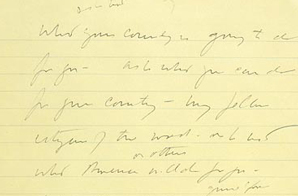
President John F. Kennedy's Inaugural Address (1961)
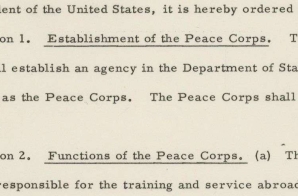
Executive Order 10924: Establishment of the Peace Corps. (1961)
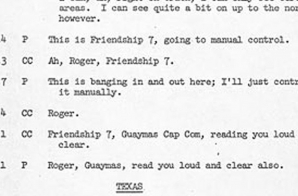
Transcript of John Glenn's Official Communication with the Command Center (1962)
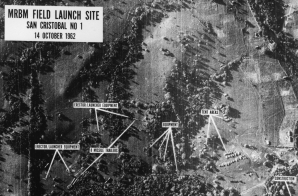
Aerial Photograph of Missiles in Cuba (1962)
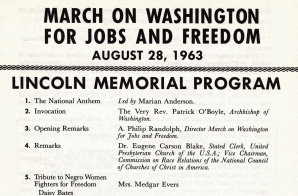
Official Program for the March on Washington (1963)
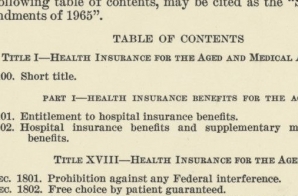
Medicare and Medicaid Act (1965)
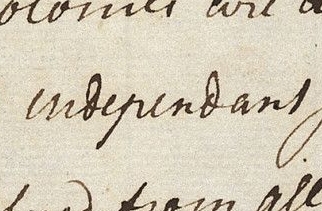
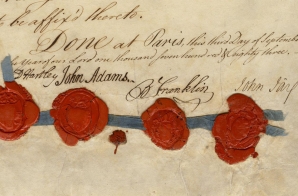
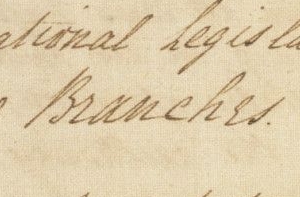
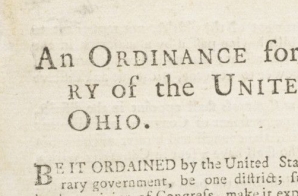
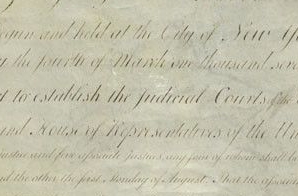
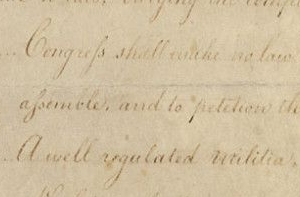
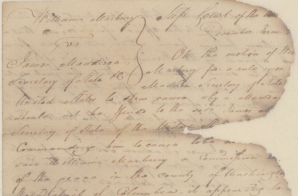

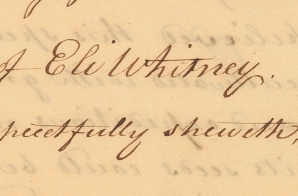
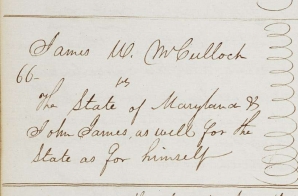
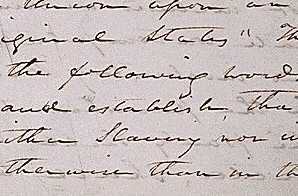
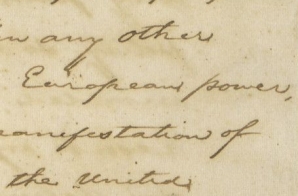
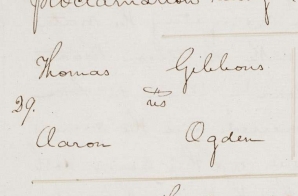
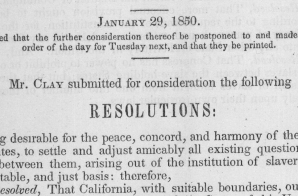
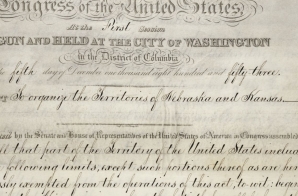
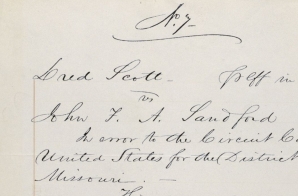
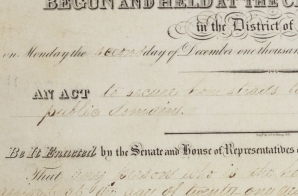
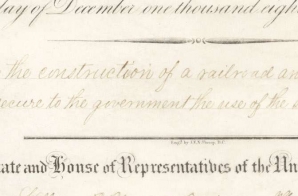
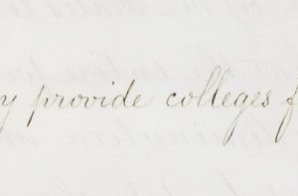
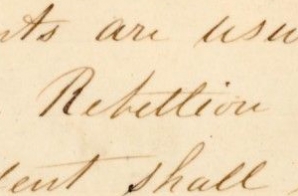
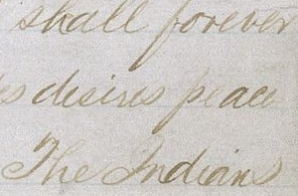
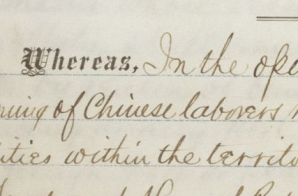
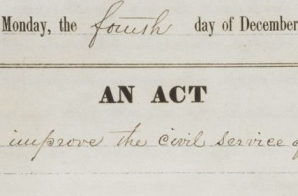
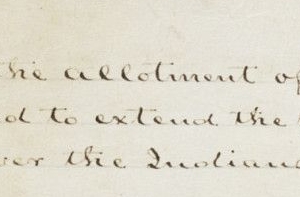
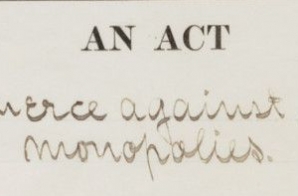
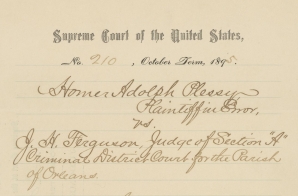
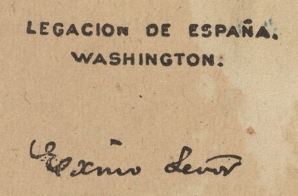
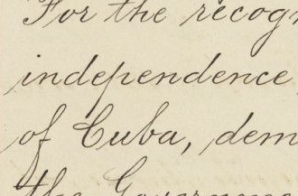
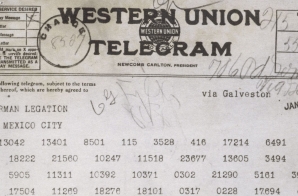
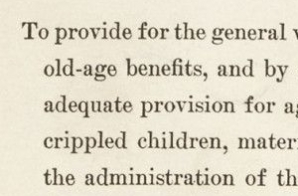 Social Security Act (1935)>
Social Security Act (1935)>